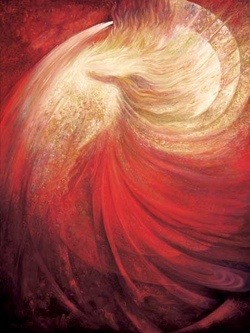You are currently browsing the monthly archive for January 2010.
Why is it hard to answer this question? Perhaps because we never answer questions like it at all. It’s a unique question. Plus we think of ourselves more than being in the moment we are in. Not just our life is what defines us. It’s also the history before us, the history of our people. The history of the planet before humans and animals were here, its history before life existed. The history of our sun and of the whole universe ultimately too. This is why people like to originate everything in cosmology. The tendency to make such theories is what produces religion, ideas of the soul and the supernatural in general.
The answer that I have right now is this: I am a self-aware process that can think.
It’s interesting to refer to myself with ‘that’ and not ‘who.’
Ask yourself: Who am I?
Invariably the internal answer will be autobiographical – an identity based on the past. It will be a description of a continuity from childhood through adolescence to adulthood which is all past memories and no longer exists. Memory is the mirror and we live on the wrong side.
Seldom will anyone answer the question of Who am I? with: I appear to be the process of reading this page.
I, Orhan Veli.
The famous author of the poem
“Suleyman Effendi, may he rest in peace,”
Heard that you are curious
About my private life.
Let me tell you:
First I am a man, that is,
I am not a circus animal, or anything like that.
I have a nose, an ear,
Though they are not shapely.
I live in a house,
I have a job.
Neither do I carry a cloud on my head
Nor a stamp of prophecy on my back.
Neither am I modest like King George of England
Nor aristocratic like the recent
Stable keeper of Celal Bayar.
I love spinach.
I am crazy about puffed cheese pastries.
I have no eyes
For material things,
Really not.
Oktay Rifat and Melih Cevdet
Are my best friends,
And I have a lover,
Very respectable.
I can not tell her name.
Let literary critics find it.
I also keep busy with unimportant things,
Only between projects,
How can I say,
Perhaps I have a thousand other habits,
But what is the point of listing them all.
They just resemble these.
It’s clear that here what was left unsaid is just as unimportant as what was said.
More Veli here.
 يا رب إجعل إرادتنا من الأشياء و الأسباب لا قشورها بل جوهرها، و أنزع لنا كئوسنا لتتوهج أكواننا الصغيرة كالمصابيح الكبيرة، ويصير في وسع كل واحد منها أن يضيء ألف مصباح
يا رب إجعل إرادتنا من الأشياء و الأسباب لا قشورها بل جوهرها، و أنزع لنا كئوسنا لتتوهج أكواننا الصغيرة كالمصابيح الكبيرة، ويصير في وسع كل واحد منها أن يضيء ألف مصباح
السهروردي في “لا تسقني وحدي” لسعد مكاوي –
“Dear God, make our will emanate from the essence of matters and purposes not from their appearance. Spare us our cups so that our humble worlds may radiate like great candles and each candle may light a thousand candles”
– Suhrawardi in Saad Mekawi’s “Don’t Fill Me a Solitary Cup”
In a series of 7 articles in Egyptian newspaper Al-Masry Al-Youm, Dr. Youssef Ziedan beautifully introduces how the Sufis view the world.
In case this is the first time you hear of Dr. Ziedan, he is a history scholar and head of the Manuscripts Department at the Bibleotheca Alexandrina. He is also a novelist with two must read gems out so far- “Azazeel” (Belzubub) and “Fe Zel Al-Afaa” (Shadow of the Serpent)- and another one called Al-Nabti (The Nabtian)on the way as well as a high anticipated study called “Arabic Theology and the Origins of Religious Violence”.
This last year I reviewed Azazeel, wrote about one of its discussions, and interviewed Dr. Ziedan afterwards.
But more recently I have been reading reprints of some of his brilliant revisions of Sufi literature, and this series about Sufism that he just finished in which he highlighted the major aspects of Sufi thought. So I collected them in this pdf (The Sufi Outlook) for anyone to download without going through the trouble of reading them online. I hope some of you find this little effort useful.
This week Ziedan started a new series where he goes into his pick of the gems of Sufi literature. Part 1 was published this Wednesday.
